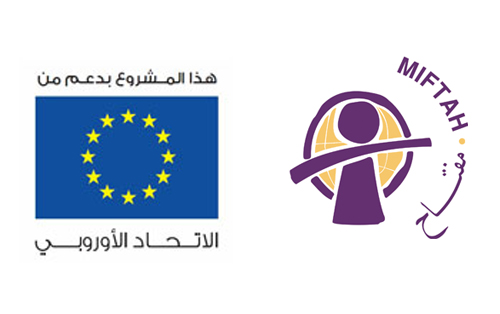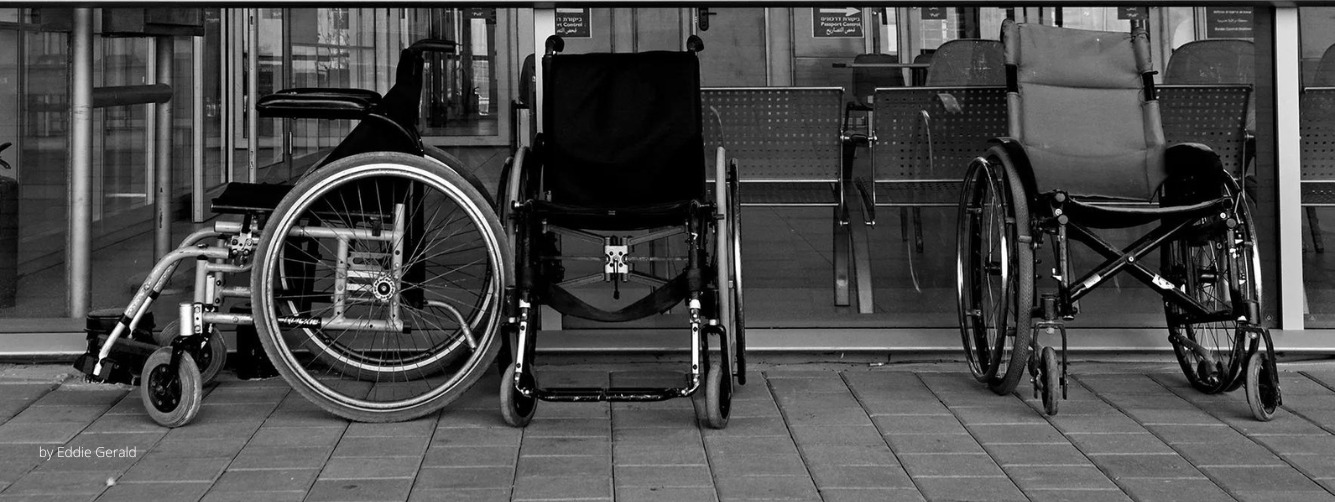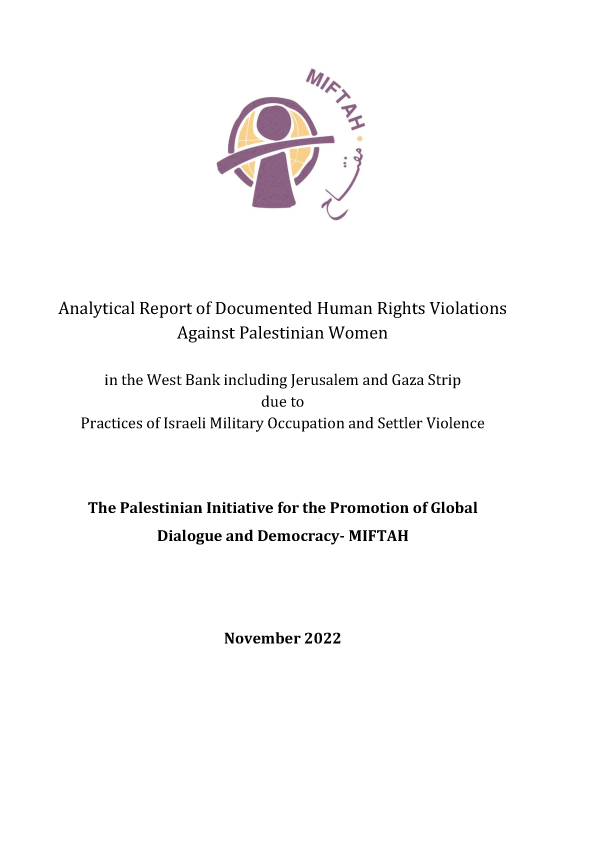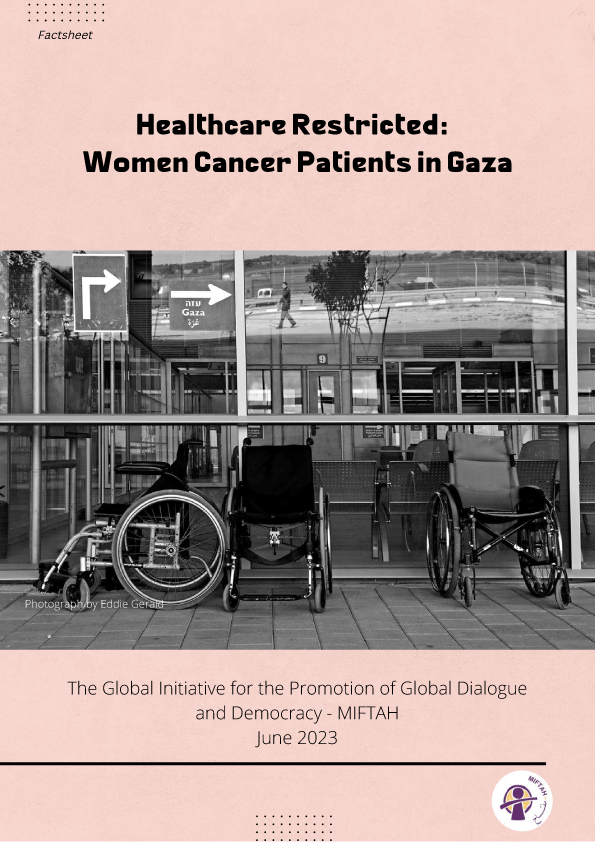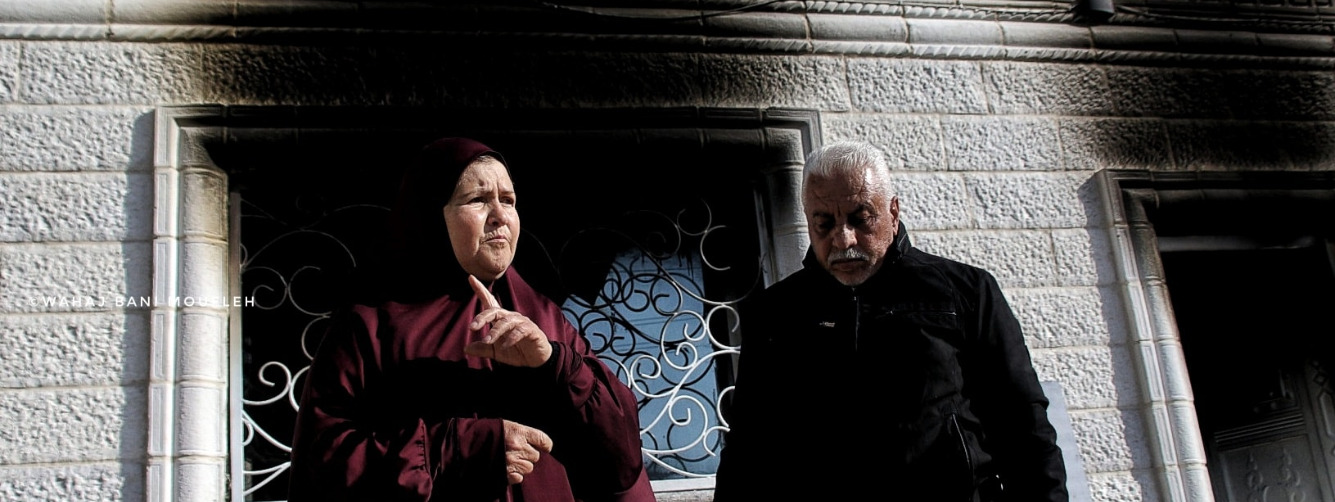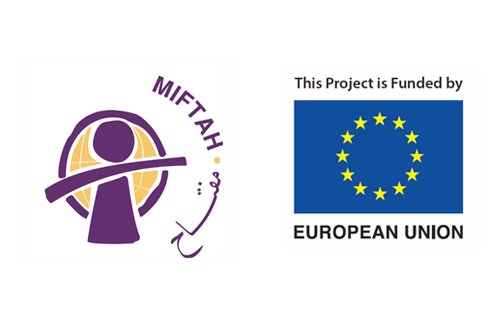
Introduction
The fishing sector in the Gaza Strip is facing a number of serious challenges. This calls for concerted efforts to achieve economic stability for thousands of Palestinian families who are subsisted by fishing work and the sale of fishing-related supplies. The main challenge facing this sector is the Israeli procedures and practices that seek to undermine it. This is because the occupation applies a systematic policy that aims to destroy this vital sector and weaken the Palestinian economy and food system. These violations are witnessed on a daily basis and they include, inter alia, attacking Palestinian fishermen and fishing boats, preventing and disrupting the entrance of auxiliary tools for fishing, and prohibiting the manufacturing of these tools in the Gaza Strip. Israeli violations also include denying access to the fishing area stipulated in the Oslo Accords (which is 20 nautical miles) and the area mentioned in the truce agreement after the 2014 aggression (which was 9 nautical miles, curtailed to 6 nautical miles, then was reduced to only 3 nautical miles).
Israeli practices and measures pushed the fishing sector to the brink of collapse, prompting several local and international organizations to urgently support this sector to prevent its total deterioration. Most of the funding for this sector (whether at the local level through Palestinian NGOs or from regional and international organizations) is directed towards its revival and helping it overcome the hurdles and challenges amidst the ongoing depletion of resources. This assistance is usually relief-oriented and aims to prevent fishermen and their families from falling into abject poverty. Furthermore, developmental projects for enhancing the fishing sector are almost always controlled by Israeli policies, thus inhibiting any real or radical change in the Palestinian fishing sector (such as rehabilitating the Gaza International Port).
Policy Paper Objective
The aim of this policy paper is to analyze the procedures, policies and role of official, unofficial and international organizations vis-à-vis the fishing sector and fisheries in the Gaza Strip in light of the ongoing Israeli violations. Moreover, it seeks to present policy proposals to promote this sector in Palestine and confront and eliminate Israeli violations.
Policy Problem:
The paper tackles the following policy problem:
- What policies should be adopted to protect fishermen in the Gaza Strip?
Reality and Context of the Palestinian Fishing Sector:
Fishermen are among the most affected Palestinian segments by the unfair Israeli practices. This made fishing conditions extremely difficult because Israel restricts the entry of necessary materials for rehabilitating boats that were damaged by gunfire or sea accidents, thus preventing fishermen from fixing or reusing their boats. These restrictions greatly affected Palestinian fishermen’s work and prevented them from making feasible profits from this sector. For example, the number of fishermen in Gaza decreased from approximately 10,000 in the year 2000 to only about 3,600 at the beginning of 2020. Also, the Labor Force Survey Report issued by the Palestinian Central Bureau of Statistics (PCBS) showed that 37.4% of Gaza’s fishermen are unemployed, 47.1% of them do not have food security, and 11.7% are exposed to food insecurity. A detailed study that examined fishermen’s needs showed that, among the different needs of fishermen, food is considered the highest priority and education is the lowest priority. The study also showed that 91.94% of fishermen’s families live below the poverty line, and that 55.67% of fishermen’s families live in extreme poverty in the Gaza Strip.
According to the Oslo Accords signed by Israel and the Palestinian Authority, the permitted fishing area is limited to 20 nautical miles. These accords and their annexes divided the sea of Gaza into three zones of maritime activity represented by characters/letters, i.e., zones “K”, “M” and “L”, respectively. These zones were described as follows by these accords:
Zone “K” and Zone “M”: Zone “K” extends to 20 nautical miles in the sea from the coast in the northern part of the sea of Gaza and 1.5 nautical miles wide southwards. As for Zone “M”, it extends to 20 nautical miles in the sea from the coast in the southern part of the sea of Gaza and one (1) nautical mile wide from the Egyptian waters. Subject to the provisions of this paragraph, Zones “K” and “M” will be closed areas, in which navigation will be restricted to activity of the Israel Navy.
Zone “L”: Zone “L” is bounded to the south by Zone “M” and to the north by Zone “K”, and it extends to 20 nautical miles into the sea from the coast. Zone “L” will be open for fishing, recreation and economic activities, in accordance with the following provisions: First: Fishing boats will not exit Zone “L” into the open sea and may have engines of up to a limit of 25 Horsepower (HP) for outboard motors and up to a maximum speed of 15 knots for inboard motors. The boats will neither carry weapons nor ammunition, nor will they fish with the use of explosives. Second: Recreational boats will be permitted to sail up to a distance of 3 nautical miles from the coast unless, in special cases, otherwise agreed within the Maritime Coordination and Cooperation Center. Recreational boats may have engines up to a limit of 10 HP. Marine motor bikes and water jets will neither be introduced into Zone “L” nor be operated therein.
However, the Israeli occupation forces did not abide by the terms of this agreement, especially after the outbreak of Al-Aqsa Intifada in 2000. Consequently, the occupation forces reduced the fishing area to 12 nautical miles as a collective punishment measure until 2006. Israel further reduced the fishing area after imposing its blockade on Gaza following the control of Hamas over the Gaza Strip, whereas the fishing area was curtailed to only 3 to 6 nautical miles. In 2019, Israel reduced the maximum area allowed for Palestinian fishermen’s boats in nine instances, and they imposed a complete prohibition on sailing in four cases. Additionally, Gaza’s fishermen received 19 notifications in 2019 regarding changes in permitted fishing areas and the allowed distances. According to human rights organizations, the second half of 2020 witnessed 171 shooting assaults by the Israeli Navy against Palestinian fishermen’s boats. As a result of these shootings, 6 fishermen were wounded and 3 were arrested, including a minor. Furthermore, the Israeli Navy caused extensive damages to seven boats, and numerous fishing equipment were severely damaged and one boat was confiscated.
Several forms of Israeli violations are being committed, whereas the occupation unhesitatingly uses brutal force and suppression in their attacks against this vital sector. These actions include the following:
- Non-compliance with the signed agreements with Palestinians and forcefully imposing unstable borders.
- Shooting, attacking and arresting Palestinian fishermen, as well as confiscating their boats and intentionally sinking them.
- Preventing the entry of spare parts for improving and rehabilitating fishing boats (such as important fishing tools and equipment). This is due to the Israeli blockade and the banned items list - which includes more than 72 types of items that are denied entry into Gaza, thus affecting the fishing sector’s activity and the livelihood of Palestinian fishermen.
- Israel prevents the marketing, transportation and exporting of fish products outside the Gaza Strip (especially to the West Bank).
Palestinian Legislations related to the Fishing Sector and Fisheries:
The “Law on Agriculture of 2003” is the applicable law in the Gaza Strip. Article (73) of this Law stipulates the following:-
“The Ministry shall develop a regulation on fisheries to be promulgated by the Council of Ministers, provided that it includes the following: 1. Regulate the fishing profession, as well as licences and fees necessary thereto. 2. Regulate the importing, exporting and marketing of fish and other aquatic beings and trading therein. 3. Define the specifications and conditions of pisciculture projects and fish farming. 4. Determine specifications of fishing nets, feeds, medicines, vaccines and hormones for the control of fish diseases. 5. Designate the seasons and times of sea fishing.” Moreover, Article (74) of this Law stated that “No solid or liquid waste or wastewater may be discharged into Palestinian fishing waters, nor may sand be taken or rocks removed from coasts or the nature of the seabed be changed”.
Additionally, Article (75) stipulates that “Beach bulldozers may not be used nor fishing nets be set up at a distance that is less than one hundred metres from the beach except by permission from the Minister”. And despite the Palestinian President’s issuance of Decree Law No. (14) of 2018 concerning the Amendment of Agricultural Law No. (2) of 2003, this decree is not applied in the Gaza Strip due to the Palestinian internal division.
The General Department of Fisheries is entrusted with implementing the aforementioned law. This Department is the competent body authorized to ensure the highest utilization of fish resources by developing this sector, promoting fish farming systems, introducing new types of fish for pisciculture and fish farming, and following up fishermen’s licensing and the movement of boats. The General Department of Fisheries also promotes the sustainability of fishing activities and ensures the adequate use of fisheries by determining the suitable fishing methods, times and tools, as well as contributing to the national food security process. However, the Ministry of Agriculture in the Gaza Strip has one of the lowest percentages of the Palestinian Authority budget and is given a low priority within the de-facto system in the Gaza Strip.
The dire situation of the Palestinian fishing sector and fisheries affected the implementation of relevant laws and legislations. For example, until now there is no insurance system for fishing boats and no abidance by the instructions related to the size and type of fishing nets. Hence, some people use illegal fishing nets and methods, not to mention the phenomenon of fishing without a license. Also, the absence of a port that conforms to international fishing standards led to the disorderly spread of fishing boats along the beach, whereas large numbers of boats are found in the limited area designated for fishing. This is because the coastal municipalities throw wastewater into the sea, thus leading to seawater pollution.
In light of what was mentioned above, this paper presents a number of policy options for relevant Palestinian and international bodies. This encompasses alternatives and suggestions to introduce policies that support Palestinian fishermen. The paper assumes that the presented propositions can be simultaneously implemented to lead to a stronger impact within a reasonable time-period.
First Alternative: Internationalize the Palestinian Fishermen’s Crisis and Resort to International Parties
Since the international law and agreements signed with Israel (especially the Oslo Accords) stipulate larger areas for Gaza’s fishermen, this alternative is considered internationally legitimate. Therefore, the Palestinian Authority must pressure the Israeli government, through the United Nations and its international agencies and bodies, to put an end to its violations against Palestinian fishermen and abide by international humanitarian law. The Palestinian Authority must also request from the Special Rapporteurs of agreements signed with Israel to pressure the latter to abide by the signed agreements. Israel should also be held accountable for its ongoing violation of international conventions, especially the two international covenants. Palestinian parties should also highlight Israel’s violations against Gaza’s fishermen and submit related reports to UN Special Rapporteurs and other United Nations mechanisms and bodies, including the UN Secretary-General, Human Rights Council, and Security Council.
Second Alternative: Empower Palestinian Farmers by Adopting Protective Policies and Measures
In accordance with the provisions of Decree Law No. (12) of 2013, the Palestinian Authority established a special independent fund for compensating for natural disasters and providing agricultural insurance. This fund is called the Palestinian Agricultural Disaster Risk Reduction and Insurance Fund (PADRRIF). However, the law is still unable to effectively deal with the Gaza Strip in general and fishing sector in particular due to the Palestinian political division. In order to empower Palestinian fishermen, the aforementioned fund (PADRRIF) must include the fishing sector, especially with regard to insurance and compensation for damages resulting from storms and weather fluctuations.
Third Alternative: Building and Rehabilitating the Gaza International Port
Despite the sizable efforts of the Palestinian Authority for establishing the Gaza International Port, the Gaza Strip still depends on the Israeli port of Ashdod for maritime transportation. In fact, the Palestinian Authority established the Port Authority in 2000 after negotiating with Israel in the Oslo Accords (1993) and Sharm El-Sheikh Agreement (1999), both of which stipulated the establishment of a Palestinian port, with a pledge from France and Netherlands to establish the port with a cost of 96 million U.S. Dollars. However, only a few phases of the port’s construction plan have been implemented on the ground. The failure to complete the Gaza International Port had negative implications for fishermen. Therefore, the completion of this port is necessary to empower the Palestinian fishing sector and enable fishermen to build larger fishing boats due to having special basins for this purpose.
To View the Full Policy Paper as PDF
This Policy Paper was prepared as part of the “Youth as Human Right Defenders” project funded by the European Union The content of this document does not reflect the official opinion of the European Union. Responsibility for the information and views expressed in the study lies entirely with MIFTAH




